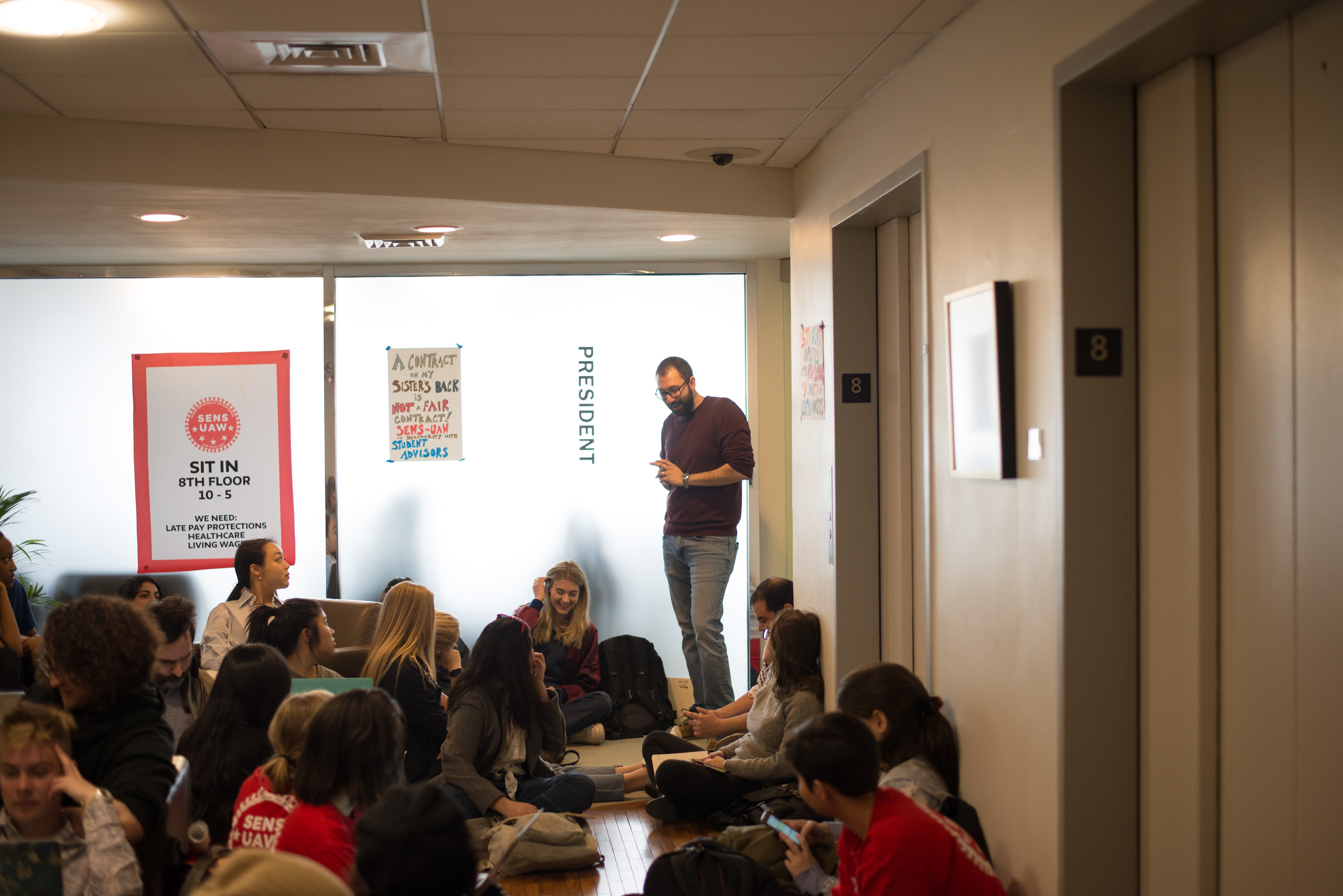More than 850 student workers plan to strike on May 8, throwing a wrench in the end-of-semester routines like grading and finals for hundreds of classes, if school administrators fail to meet their demands, organizers said.
The 852 workers, organized under the union SENS-UAW, are teaching assistants, teaching fellows, research assistants, course assistants and tutors who work throughout the entire university, a union representative said.
The strike would halt all academic work by student workers as the semester comes to a close. This could include canceled classes, a delay in the grading of assignments and limited or no availability of tutors.
The union, which was formed in May 2017 after pushback from the university, has been bargaining with administrators since September 2017.
Union members approved of the strike deadline when negotiations over financial demands grew stagnant, organizers said. The union wishes to sign a contract by the end of the semester. “Striking is our last resort,” according to the union’s website.
In a university-wide email, the president and top administrators tried to tamp down support for the strike by saying administrators were working with the union productively.
“Together, the university and union have reached agreement on a number of non-economic proposals, including health and safety, grievance procedures, non-discrimination and harassment, and intellectual property, among other issues,” the email read. “We also fully agree that student workers must be paid on time. The university is committed to identifying further enhancements to expedite payments in the event of a delay through no fault of the student.”
The strike would come in the wake of a sit-in hosted in early April to protest inaction from the university during bargaining.
The bargaining committee has been meeting regularly with representatives from the university to discuss financial demands as well as other forms of support like health insurance, fee waivers, tuition, childcare for academic student workers.
“What they proposed we did not consider to be a credible and realistic offer. We didn’t consider that it valued academic and student worker labor at the level at which it should be valued and we think that for an institution that can spend $50 million on institutional support, it was far less than they should be able to pay academic student workers,” said Michael Dobson, 32, a Ph.D. politics student who is working with the union.
Both the union and the university declined to comment on the proposals that were brought to the bargaining table.
Nearly 230 faculty members signed a letter to support the proposed strike.
“We, the undersigned faculty, recognize that academic student workers play an essential role in fulfilling our university’s mission by educating our students and conducting critical research. It is paramount that the administration respect the bargaining process and address their working conditions with the urgency and seriousness required,” the letter read.
The student workers said they’re ready for the strike.
“This has been a really long road. It’s time for us to get the contract agreed. Additionally, we feel that we are now in a position to conclude negotiations by the deadline, so this is just making sure we do that in a sense,” Dobson said.
The New School is represented in the negotiations by Keila Tennent-DeCoteau, vice president of labor relations for the university, and Douglas Catalano, a lawyer with union expertise at Clifton, Budd and DeMaria, LLP.
Catalano specializes in “methods for maintaining union-free status in the face of organizing activity,” according to his firm’s website.
Photo by Anna Del Savio.







